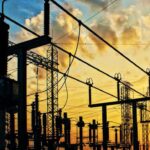I
f you are with Nigeria’s political power circles, you don’t want to hear the country described as a failed state. That is understandable. To admit that it is, would be to admit responsibility for at least some part of it.
Sadly, and contrary to our hopes and dreams at independence, 60 years ago, Nigeria is at the very best a failing state. It is simply not in violent fragments, but that is the next stage. There is something Nigerians can do to avoid that.
- Politicians dividing Nigerians for selfish gains – Falana
- Anambra guber: APC candidate escapes gunshot
But what does a failed state look like? Thirty years ago, this question might have been difficult to answer. Today, the answer is right there in your palms.
If you own a phone, the answer is right there as you turn it on: the country is in chaos. Such chaos that even President Muhammadu Buhari cannot guarantee his own security in the presidential villa let alone outside it. Just two weeks ago in his home state of Katsina, two House of Assembly members wept as they reflected on the terrible insecurity in 32 of the 34 local government areas. They observed that kidnappers were visiting the homes of citizens and snatching people unchallenged.
In the phones of Nigerian citizens are now endless stories and images and videos of people everywhere being savagely attacked in their homes and communities and schools and worship centres and streets and farms and markets. On every phone, Nigerians are sharing accounts of schools emptied by ransom-seeking bandits; of kidnappers who know every highway and every trail nationwide; and of so-called herdsmen who know it is far more profitable kill than to own one head of cattle.
The result is a nation in torment, rent down the middle as its people bleed not simply from the machete-cuts and gunshots, but from hearts broken from the betrayal of politicians.
That leads to another graphic element of a failed state: the institution of official hypocrisy. Sadly, the Buhari government has become a study in how a promising outfit became exposed as a promise factory. The evidence is on your phone.
The Buhari government arrived to change Nigeria from ugly to glorious; instead, it has pushed the nation to the edge of disintegration while praising and glorifying itself.
While Nigerians are being openly slaughtered by criminals and gangs who have no fear of apprehension, the regime publicly worships itself. It squanders scarce resources on its own self-appraisal and approval.
While Nigerian farmers, businesses and communities are becoming abandoned in exchange for poverty and destitution, government officials are declaring the enemy to be only civil service organisations and social media. The evidence is on your phone.
All over the country, the helplessness is palpable. People are afraid to go out or to travel; they are as afraid to be on the streets as they are to be in their homes; they are as afraid to attract attention to themselves as they are to be in a crowd.
The official Buhari administration response: arresting, hounding, or jailing critics without confronting the problem. In Aso Rock, it is referred to as “pursuing them”, and it has brought Nigeria face-to face with disintegration. It is the “end times” of the Nigerian nation-state as we know it.
The Nigeria of the moment, everyone knows, is at the thin edge of the precipice. Nigeria cannot go forward. There is no forward—or future—in the mistrust and division this government has engineered.
This darkness ought not to happen and should not. But every Nigerian can feel it, can sense it, and can see it on his phone. As Nigeria bleeds, her children kidnapped, women raped and bones broken; as people and dreams die on the open streets, the rich and powerful—still largely unable to travel abroad, on account of COVID-19—converge on Abuja, which is thought to be safe, and hide in their fortresses.
But the ordinary Nigerian knows that nobody is individually safe unless we can all be reasonably safe.
How can Nigeria survive? As citizens wring their hands helplessly, staring at a government decaying in its own incompetence and malevolence, how—beyond hope and prayer—can Nigerians influence their destiny beyond Buhari?
I have two thoughts. The first is that, on account of the experience of the nation since Buhari took power in May 2015, the Buhari era must be considered lost.
Lost, not won. If Buhari has won, even he does not know what he has won, and it is unsustainable. If there is a “victory” there somewhere, it is not for any section of Nigeria. Not for any religion or region or ethnicity. If Nigeria falls apart, there will be no direction for anyone to run or hide as there are no safe roads or rail or airports or foreign villas for anyone to attempt to flee. There will be no point on earth at which history or an #EndSARS outpost will not challenge every complicit Nigerian.
My second thought then, is that if we are to get to the post-Buhari era then, the present—today—must assume the responsibility. There are two nodes of urgent response.
The first node is the Council of State as provided in the Nigerian constitution, which is empowered “to advise the President whenever requested to do so on the maintenance of public order within the Federation or any part thereof and on such other matters as the President may direct”.
Membership of the Council comprises the President, the Vice-President, all former Presidents of the Federation and all former Heads of the Government of the Federation; all former Chief Justices of Nigeria; the President of the Senate; the Speaker of the House of Representatives; all the Governors of the states of the Federation; and the Attorney-General of the Federation.
In normal times, it is the president who convenes meetings of the Council. But this is an emergency, and assuming that retired army generals are not afraid, such vocal former leaders as Yakubu Gowon, Olusegun Obasanjo, Ibrahim Babangida and Abdulsalami Abubakar should undertake the burden of convening a pre-Council meeting TODAY, and then publicly request an urgent meeting of the body to advise the president on the maintenance of public order, alias security.
At that meeting, which I imagine Mr. Buhari would be happy to convene given that he meets incessantly, even if in futility, with his security chiefs, the Council would bring to the president’s attention how to arrest the current danger immediately.
The second node of response to our imminent implosion, should there be the political will to convene an immediate meeting of the Council of State, is for key national leaders: former political leaders, as well as Southern and Northern leaders, religious leaders, retired top military leaders and traditional leaders, to convene an urgent meeting in Abuja in the next few days with the same agenda, and determine how to move forward.
Nigeria, as currently constituted, has reached the end of every wiggle room. Action is demanded. Silence and pretending that all is well, or that the situation will resolve itself, will be costly.
There may be no tomorrow.
This column welcomes rebuttals from interested government officials.
• @Sonala.Olumhense

 Join Daily Trust WhatsApp Community For Quick Access To News and Happenings Around You.
Join Daily Trust WhatsApp Community For Quick Access To News and Happenings Around You.

